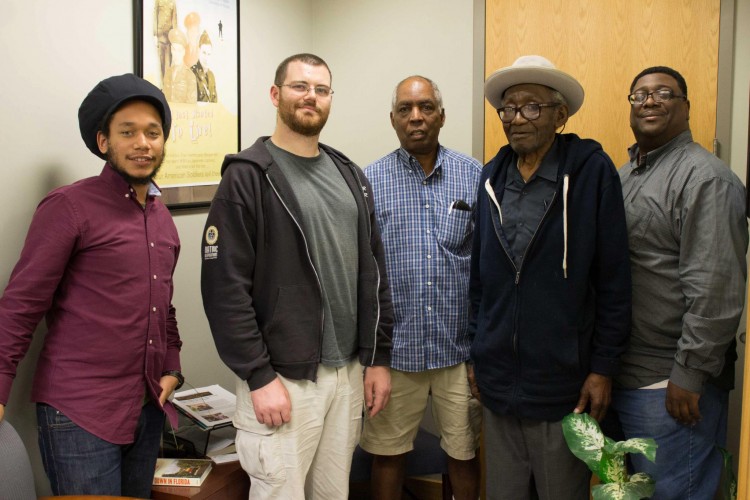“Segregation,” Joseph Welch, AAHP-303
By Jasmine Reynolds, Intern
 Listen: Oral history interview clip at UFDC with Joseph Welch 00:55
Listen: Oral history interview clip at UFDC with Joseph Welch 00:55
Upon entering the military during World War II, Mr. Welch talks about his experiences in Europe. He states,
When it came time to catch the bus to come back to camp for revelry, all black soldiers had to stand aside while they lure up all the whites at the other end. If there were seats left, you’d have occupied all seats or if not that. I mean, we’re all supposed to meet at revelry at the same time. You had to just wait. And oftentimes, we were late getting back to camp yeah because of that policy.
-Joseph Welch, AAHP-303
Even though the men were in a different country they still had to experience segregation within the military. Mr. Welch also found it ironic that while they were shipped to another country to defend the Europeans against Hitler’s fascist regimes; back on the home front there was still much racism and separatism alike.
Joseph Welch was born in Gainesville, FL on June 16th, 1922. He was raised in the Porters community near downtown Main Street, and remained at that residence until his death on June 19th 2014. After serving in World War II Mr. Welch became a well-known and liked teacher for the Alachua County School Board. During his tenure as a teacher he taught at A.L. Mebane and Newberry High School. There is currently a scholarship set up in Mr. Welch’s name at A.L. Mebane High School.
Another instance Mr. Welch describes is that of how the black and white soldiers were treated in different ways even though they wore the same uniform and fought for the same country. He stated,
And that became very important to me after you got overseas because in here, we all – you’re white, and I’m black. And when we went in the same uniform, representing the same country [laughs] yet, we’re separate. And all the commanders and things, most of them, they all white even with black outfits.
-Joseph Welch, AAHP-303
Mr. Welch says as black men they weren’t allowed to shoot German soldiers because that would equate to them being superior over their white commanders. Even though there was separation on the home front and within the military, during the time, Mr. Welch seemed to not let this experience define his participation in the military.
Mr. Welch, second from the right in a photo from the African American History Project. For additional information about these and other histories, contact SPOHP, call the offices at (352) 392-7168, and connect with us online today.
